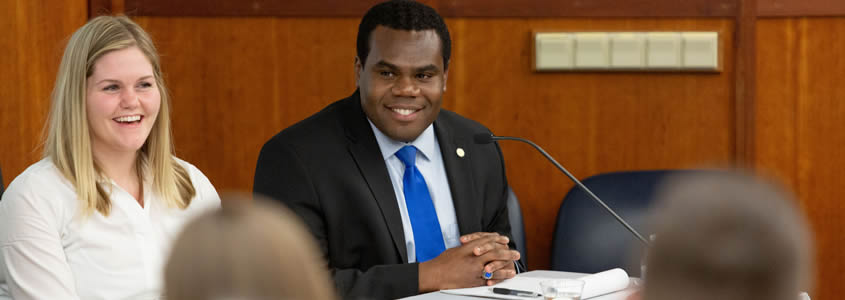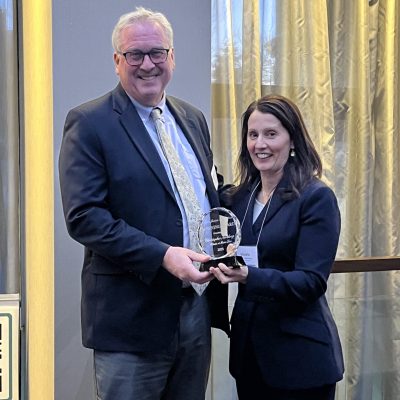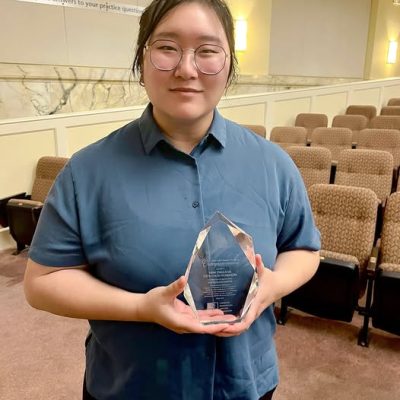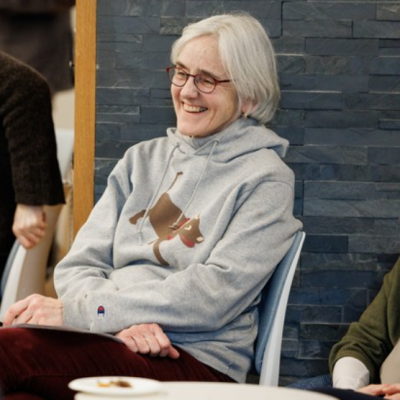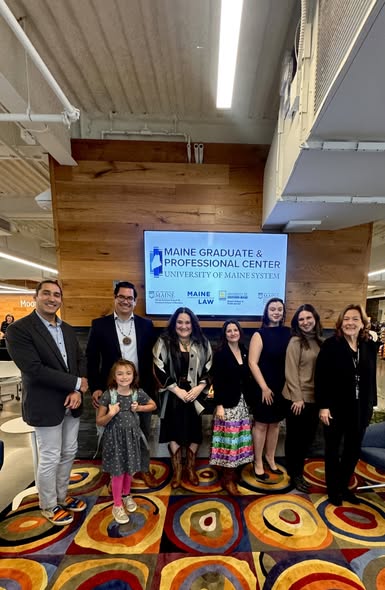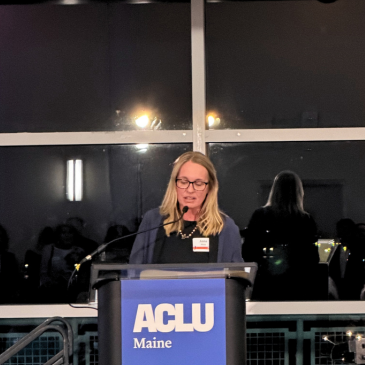When Governor Janet Mills signed L.D. 1304 (An Act to Ease Financial Burdens for Juveniles Involved in the Justice System) into law on June 26, 2019, it was the culmination of three years of work by a coalition of dedicated Maine Law students and youth advocates. Whitney Lallas ’19 and Reggie Parson ’19 spearheaded the effort, working with the Juvenile Justice Clinic (JJC), under the supervision of the Maine Center for Juvenile Policy and Law (MCJPAL).
The legislation provides new protections for young people who are ordered by a judge to pay restitution. These payments will no longer go to insurance companies, as they often have in the past, but only to victims. In addition, those younger than 16 are now presumed financially unable to pay fines and fees unless the state proves otherwise. Also, juveniles who are ordered to pay restitution will now be able to have that obligation modified or eliminated when their circumstances change.
Maine Law Clinical Professor Christopher Northrop, who launched the JJC in 2006, says that until now there has been “no legal remedy, no way for these youth to ever escape this obligation regardless of the circumstances.” For many young offenders, large restitution fees, often paid over lengthy periods of time, create financial burdens that follow them well into adulthood and keep them tied to the justice system.
While the goal of restitution is to make offenders accountable to their victims, the policy fails to take the economic hardship or living situation of juveniles into account, resulting in extreme inequity. “It’s not really holding someone accountable if their parents can easily pay off their fines. What it teaches is: money buys you justice, and if you’re poor you don’t get justice,” says Jill Ward, project manager of MCJPAL. The new law is a step toward leveling the playing field.
Lallas and Parson were the driving force behind L.D. 1304, beginning when they saw their young clients, many of whom were homeless or had extremely limited resources, being pulled back into juvenile court for non-payment of fees. They quickly realized the problem required a legislative fix. “It’s a beautiful thing when a student can come back from court and say, ‘This is really wrong. How can we fix it? Not only for our client, but for all youth in Maine?’” says Northrop.
The students’ involvement included drafting and redrafting the statute, finding sponsors and co-sponsors, attracting partners like the ACLU of Maine and the Maine Association of Defense Lawyers, and testifying in support of the bill. They also encouraged their clients to bring their own stories to the legislature. Ward emphasizes that “It wasn’t just (Lallas and Parson) testifying about representing these young people, but also helping them prepare to testify and making them part of the advocacy process.”
Lallas and Parson also worked to locate available grant money, eventually connecting with the Antonia J. Daley Foundation. “As a result,” says Northrop, “a number of young adults have already been able to cover all their restitution fines and fees and clean their slates.”
Ward says, “Fostering real-world, practical opportunities to address problems that students themselves identify reflects really well on the Law School.” She adds that the partnership between the Clinic and MCJPAL, thanks in large part to generous support from the John T. Gorman Foundation, creates opportunities for students to “get outside the academic world and understand the field in a bigger picture way.”

